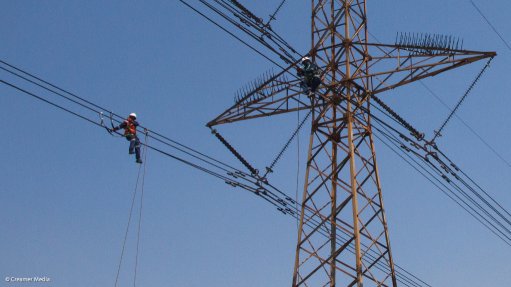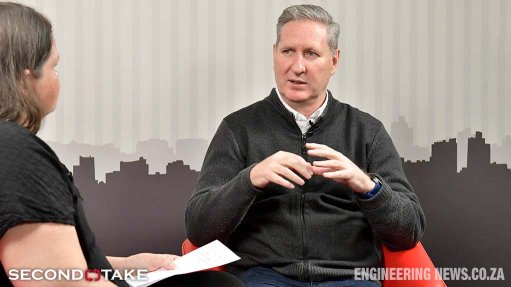RFA says truck attacks, looting threaten South Africa's reputation as an efficient logistics hub
Industry organisation the Road Freight Association (RFA) says the looting and violent attacks on road freight logistics vehicles and the wanton destruction of trucks and goods has begun to undo the status of South Africa as a safe haven for investment, and as an efficient logistics hub for foreign traders.
“What started out as sporadic incidents on one or two routes, has become the norm on any and all routes of the total supply chain, which occur whenever someone is upset, and is affecting destinations and originations. With the total supply chain now being impacted, the economic effects are far reaching,” RFA CEO Gavin Kelly says.
While short-term losses run into millions of rands, the long-term impact is "incalculable and will be felt long after the burning has stopped" and when it is far too late, he adds.
Freight travelling through South African ports, especially the Port of Durban and along the corridors that have been targeted, mean cargo owners and customers will choose to move cargo through neighbouring countries.
“This has already been happening as South African ports become inefficient and the surrounding ports develop, improve and drive efficiencies up. South Africa’s Gateway to Africa status has been lost and these attacks will further cement the move of transit freight from South Africa to neighbouring countries. Port revenues will drop, as will income through all support and related freight logistics users," he says.
Additionally, depending on the category of vehicle, the type and value of cargo, and the specialised equipment required for the cargo, the financial impact on businesses can be anywhere between R3-million to R10-million. However, the cost of loss of income through businesses closing is far greater: There are instances where small businesses have lost their only truck or trucks.
“This means a loss of earnings or revenue for the business, loss of salaries paid to staff who would no longer have jobs, owing to the business being shut down, loss of revenue through the services and support the business uses, such as fuel, storage, maintenance, tolls, staff requirements and licensing, among others,” Kelly notes.
The potential closure of businesses means fewer transporters available to perform work. Some companies might feel the industry is not a safe or secure environment, and so their owners could decide to simply close their business, he adds.
Further, costs relating to insurance will increase, as the risk to insurers has increased over the last four years, partly as a result of the constant attacks on freight.
“The evidence is clear that road freight is attacked as it is an easy target and the looting prospects are huge in terms of the quantity and the variety of goods that can be looted. Security costs will increase as logistics companies are forced to employ guarding services. Routing will change to safer, but perhaps far longer, routes, where control is easier,” he says.
The consumer will foot the bill for what has happened through indirect charges relating to the cost of logistics and as risk appetite softens and insurance providers demand more for premiums. Supply and demand will dictate cost, he highlights.
The cost to operational assets is just the tip of the iceberg and, as reports come in, this may very well grow, However, the cost to the South African economy will run into billions of rands lost, as business confidence from foreign investors plummets, and those who use South Africa as a transit hub, turn away from us and move to other countries that are safer and more efficient.
“The association reiterates its call to the President to ensure that common violence is dealt with. The level of opportunistic crime is far too high. It needs to be dealt with now. The Association has repeatedly called for the rule of law to be shown to be firmly in place and that the safety and security of South Africa and its people is ensured. Government needs to act swiftly and decisively to bring an end to this senseless destruction of the road freight sector,” Kelly says.
Comments
Press Office
Announcements
What's On
Subscribe to improve your user experience...
Option 1 (equivalent of R125 a month):
Receive a weekly copy of Creamer Media's Engineering News & Mining Weekly magazine
(print copy for those in South Africa and e-magazine for those outside of South Africa)
Receive daily email newsletters
Access to full search results
Access archive of magazine back copies
Access to Projects in Progress
Access to ONE Research Report of your choice in PDF format
Option 2 (equivalent of R375 a month):
All benefits from Option 1
PLUS
Access to Creamer Media's Research Channel Africa for ALL Research Reports, in PDF format, on various industrial and mining sectors
including Electricity; Water; Energy Transition; Hydrogen; Roads, Rail and Ports; Coal; Gold; Platinum; Battery Metals; etc.
Already a subscriber?
Forgotten your password?
Receive weekly copy of Creamer Media's Engineering News & Mining Weekly magazine (print copy for those in South Africa and e-magazine for those outside of South Africa)
➕
Recieve daily email newsletters
➕
Access to full search results
➕
Access archive of magazine back copies
➕
Access to Projects in Progress
➕
Access to ONE Research Report of your choice in PDF format
RESEARCH CHANNEL AFRICA
R4500 (equivalent of R375 a month)
SUBSCRIBEAll benefits from Option 1
➕
Access to Creamer Media's Research Channel Africa for ALL Research Reports on various industrial and mining sectors, in PDF format, including on:
Electricity
➕
Water
➕
Energy Transition
➕
Hydrogen
➕
Roads, Rail and Ports
➕
Coal
➕
Gold
➕
Platinum
➕
Battery Metals
➕
etc.
Receive all benefits from Option 1 or Option 2 delivered to numerous people at your company
➕
Multiple User names and Passwords for simultaneous log-ins
➕
Intranet integration access to all in your organisation


















